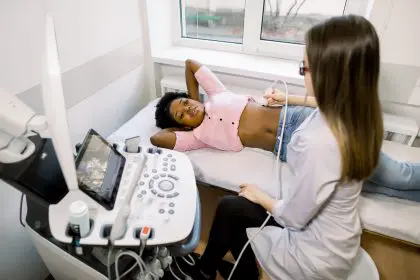Colon cancer remains one of the most prevalent yet often undetected forms of cancer, developing silently in the large intestine. According to recent medical data, it ranks as the third most common cancer diagnosis in both men and women. While traditionally associated with older adults, medical professionals now report increasing cases among younger populations, particularly those with family histories of the disease. Current statistics indicate a concerning rise in diagnoses among adults under 50, emphasizing the importance of early detection across all age groups.
Understanding the disease
Colorectal cancer develops gradually, often without obvious early warning signs. This characteristic makes it particularly dangerous, as symptoms might not appear until the disease has advanced. Regular screening becomes crucial, especially for those over 45 or with higher risk factors.
The disease typically begins as small, benign clumps of cells called polyps that form on the inner lining of the colon. Over time, some of these polyps can become cancerous. Medical research indicates that certain risk factors, including obesity, smoking, heavy alcohol use, and a diet high in red meats, may accelerate this progression.
Critical warning signs
1. Changes in bowel patterns
Persistent alterations in bowel habits often signal potential digestive system issues. While occasional irregularity occurs normally, certain changes warrant medical attention. Medical experts emphasize monitoring changes that persist beyond three weeks, including:
Stool consistency alterations, particularly narrowing of stool diameter, often indicate potential blockages. Recent studies show that up to 80% of diagnosed patients reported noticeable changes in their bowel habits before diagnosis. Difficulty completing bowel movements or feeling incomplete evacuation may also signal underlying issues.
The color, consistency, and frequency of bowel movements provide valuable diagnostic information. Doctors recommend maintaining a symptom diary to track changes effectively.
2. Unexplained weight reduction
Sudden weight loss without lifestyle changes often indicates serious health concerns. Colon cancer can interrupt normal nutrient absorption, leading to unexpected weight reduction. Medical professionals consider unexplained weight loss of 10 pounds or more within six months significant enough to warrant investigation.
Cancer-related weight loss typically occurs because:
- Tumors consume significant calories
- Digestive efficiency decreases
- Appetite often diminishes
- Nutrient absorption becomes compromised
3. Blood presence in stool
Blood appearing in stool represents one of the most significant warning signs, occurring in approximately 60% of diagnosed cases. This symptom may manifest as:
- Bright red blood in stool
- Dark, tar-like stool consistency
- Blood traces on toilet tissue
- Iron-deficiency anemia due to chronic blood loss
While hemorrhoids or anal fissures commonly cause rectal bleeding, any blood presence requires prompt medical evaluation. Modern screening methods can quickly determine the source and severity of bleeding.
4. Abdominal discomfort
Persistent abdominal pain or discomfort differs from normal digestive issues. Cancer-related discomfort often presents unique characteristics:
- Pain that doesn’t resolve with normal remedies
- Cramps that worsen over time
- Unusual bloating or pressure
- Discomfort that interferes with sleep
- Pain that occurs with other symptoms
Studies indicate that abdominal discomfort becomes more frequent and intense as the disease progresses. Unlike typical digestive issues, cancer-related pain often doesn’t improve with dietary changes or over-the-counter medications.
5. Chronic fatigue
Ongoing exhaustion that rest doesn’t improve often indicates underlying health issues. Cancer-related fatigue typically:
- Persists despite adequate sleep
- Interferes with daily activities
- Accompanies weakness or shortness of breath
- Worsens progressively over time
This fatigue often stems from anemia caused by internal bleeding, reducing oxygen delivery throughout the body. Medical data shows that up to 75% of cancer patients experience significant fatigue during their illness.
Prevention and screening protocols
Current medical guidelines recommend regular colonoscopy screening starting at age 45 for average-risk individuals. Those with family history or other risk factors might need earlier or more frequent screening. Alternative screening methods include:
- Annual fecal immunochemical tests
- DNA stool tests every three years
- Virtual colonoscopy every five years
- Flexible sigmoidoscopy every five years
Lifestyle modifications for prevention
Research indicates several lifestyle factors can significantly influence colon cancer risk:
Diet plays a crucial role in prevention. Studies show that increasing fiber intake to 30 grams daily can reduce risk by up to 30%. A diet rich in:
- Fresh fruits and vegetables
- Whole grains
- Lean proteins
- Healthy fats
can help maintain colon health. Limiting processed meats, excessive alcohol consumption, and maintaining regular physical activity significantly reduces risk factors.
When to seek care
Medical professionals recommend immediate evaluation when symptoms persist beyond three weeks. Early detection significantly improves treatment outcomes, with survival rates exceeding 90% when caught in early stages. Consider urgent medical attention if experiencing:
- Persistent changes in bowel habits
- Unexplained weight loss
- Rectal bleeding or blood in stool
- Ongoing abdominal pain
- Chronic fatigue resistant to rest
Conclusion
Understanding colon cancer symptoms enables early detection and improved treatment outcomes. While these symptoms might indicate other conditions, proper medical evaluation ensures appropriate care. Regular screening combined with symptom awareness provides the best defense against this serious disease.
The medical community emphasizes that early detection through screening and prompt attention to warning signs saves lives. Maintaining open communication with healthcare providers and addressing concerns promptly offers the best chance for positive outcomes.
This story was created using AI technology.













